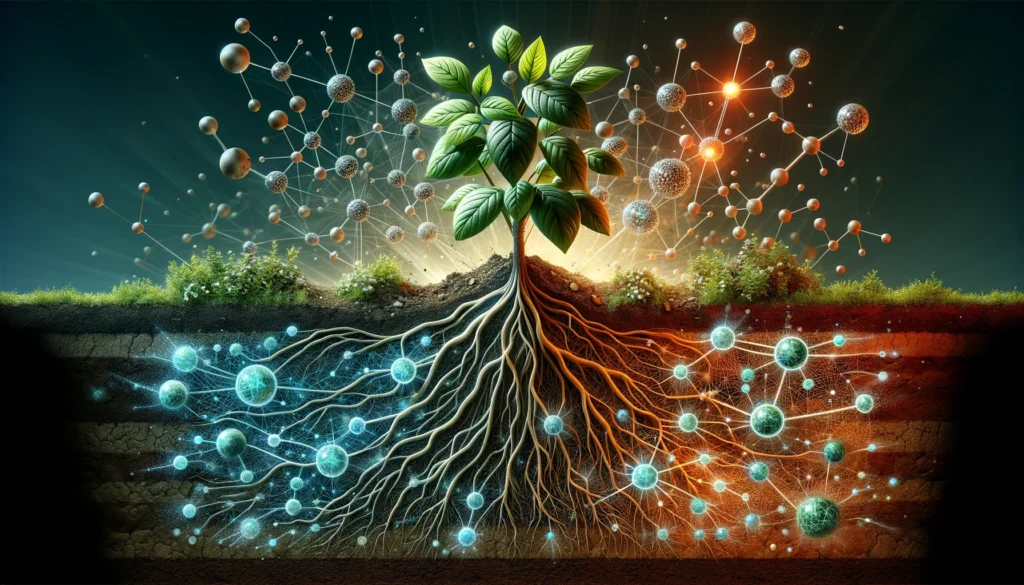Welcome to “Eco-Fungi: Earth’s Climate Fix,” a captivating journey into how fungi, the Earth’s hidden champions, are pivotal in our battle against climate change. This series unveils the often overlooked yet significant influence of fungi on our planet’s health and future sustainability. Let’s embark on this adventure to understand the crucial roles fungi play and envision a path toward a more resilient and thriving Earth.
 Fungi: Earth’s Underappreciated Allies
Fungi: Earth’s Underappreciated Allies
Fungi, with their diverse kingdom ranging from microscopic yeasts to sprawling mycelial networks, are integral to life on Earth. Far beyond just the mushrooms that sporadically appear in our gardens, fungi form the backbone of ecosystems, recycling dead matter into nutrients vital for plant growth. This incredible group of organisms operates largely out of sight, beneath our feet, and within the world’s forests, playing essential roles that support life as we know it.
The Climate Crisis at Hand
Today, our planet stands at a critical juncture, facing the escalating challenges of climate change driven by the rise in greenhouse gases like carbon dioxide (CO2) and methane (CH4). These gases, trapping heat in our atmosphere, lead to global warming and a cascade of environmental impacts threatening biodiversity, weather patterns, and global ecosystems. In the search for natural and effective solutions to mitigate these effects, the potential of fungi has emerged as a beacon of hope.
 Fungi: The Natural Climate Solution
Fungi: The Natural Climate Solution
Imagine a vast, unseen network of fungi, tirelessly working to sequester carbon from the atmosphere and lock it away in the soil. These organisms are not just passive inhabitants of their environments but active participants in the carbon cycle, forming symbiotic relationships with plants to help them grow while storing away carbon that would otherwise contribute to global warming. Beyond carbon sequestration, fungi are at the forefront of creating sustainable materials, decomposing pollutants, and even shaping the future of food and medicine.
Why “Eco-Fungi: Earth’s Climate Fix”?
In this series, we will explore the expansive roles fungi play in environmental conservation and climate change mitigation. From enhancing soil health and fostering carbon capture to pioneering green technologies and sustainable practices, fungi offer promising avenues for ecological restoration and climate resilience.
Join Us on a Journey of Discovery
As we delve into “Eco-Fungi: Earth’s Climate Fix,” we invite you on a journey of discovery to uncover the hidden powers of fungi and their potential to transform our world. By understanding and harnessing the capabilities of these ecological workhorses, we can open new pathways to a sustainable future, combating climate change and revitalizing our planet.
Stay tuned as we explore the incredible world of fungi, where each installment of our series will bring to light the essential contributions of these remarkable organisms in our collective quest for climate solutions.
Author’s Note
As we embark on this series, our goal is to make the science behind fungi and their environmental benefits accessible to everyone. We hope to inspire and engage you in the crucial conversation about climate change and the natural solutions that fungi present. Let’s explore these tiny giants together and learn how they might hold the key to a sustainable future.
G.C., Ecosociosphere contributor.
References and Further Reading
- “Entangled Life” by Merlin Sheldrake – Delve into the fascinating world of fungi and their intricate relationships with all forms of life.
- “Mycelium Running: How Mushrooms Can Help Save the World” by Paul Stamets – Explore the incredible potential of fungi to restore ecosystems and combat environmental challenges.
- “The Hidden Life of Trees” by Peter Wohlleben – While focused on trees, this book offers insight into the critical role fungi play in forest ecosystems and the broader natural world.





Comments
Very well introduced, crisp and clear
Thank you for your sharing. I am worried that I lack creative ideas. It is your article that makes me full of hope. Thank you. But, I have a question, can you help me?
Your point of view caught my eye and was very interesting. Thanks. I have a question for you.
Your point of view caught my eye and was very interesting. Thanks. I have a question for you.